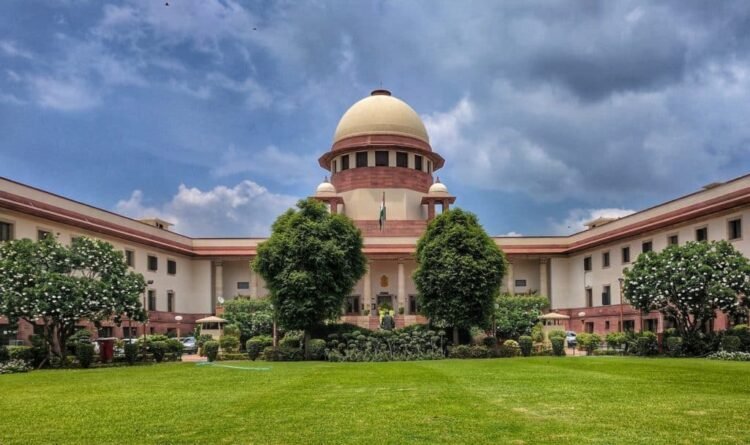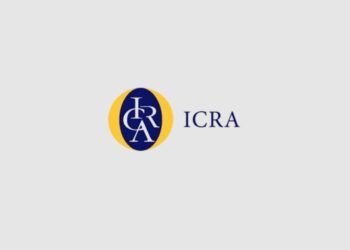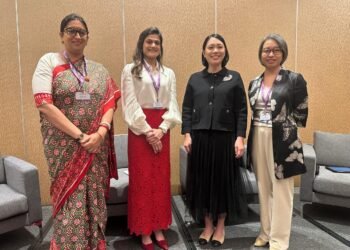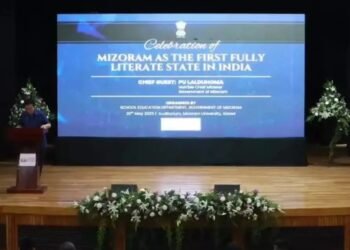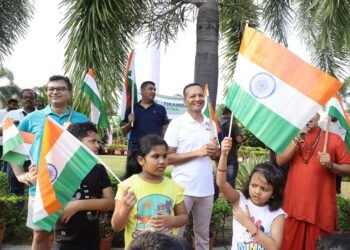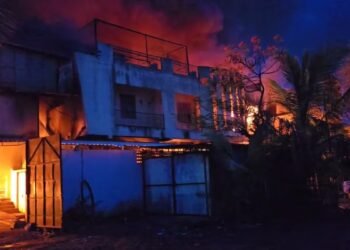The Supreme Court’s seven-judge constitutional bench has delivered a historic verdict stating that states have the right to sub-classify SCs for reservations in government jobs.
NEW DELHI (India CSR): The Supreme Court has recently issued a landmark ruling allowing sub-classification within the reservation for Scheduled Castes (SC). This decision has sparked widespread discussion across the country. The constitutional bench of the Supreme Court, by a 6:1 majority, has allowed sub-classification within the SC reservation. This move is expected to benefit those groups that have remained marginalized despite the existing reservation.
In 2004, the Supreme Court had ruled that sub-classification within the SC category for the purpose of reservation would violate the right to equality.
Political Reactions
Various political parties have reacted to this decision. Chirag Paswan, President of LJP (R), has requested the Supreme Court to reconsider the decision, while Karnataka Chief Minister Siddaramaiah has termed it “historic.”
Understanding SC Sub-Classification
States have argued before the court that some groups within the SC category receive significantly less representation despite reservations. This disparity within SC groups has been highlighted in several reports, leading to the creation of special quotas. States like Andhra Pradesh, Punjab, Tamil Nadu, and Bihar have implemented special quotas for the most backward Dalit groups. In 2007, Bihar formed the Mahadalit Commission to identify the most backward castes within the SC category.
In Tamil Nadu, the Arundhatiyar caste has been given a three percent quota within the SC reservation, as a report by Justice M.S. Janarthanam noted that despite forming 16% of the SC population, they had only 0-5% representation in jobs. In 2000, the Andhra Pradesh legislature passed a law reorganizing 57 SCs into sub-groups and distributing the 15% SC quota in proportion to their population. However, this law was declared unconstitutional by the Supreme Court in 2005.
Punjab also had laws prioritizing Valmiki and Mazhabi Sikh communities within the SC quota. This led to the recent Supreme Court decision.
Details of the Supreme Court Ruling
The Supreme Court’s seven-judge constitutional bench has delivered a historic verdict stating that states have the right to sub-classify SCs for reservations in government jobs. The decision allows states to identify the most backward groups within the SC category and create separate quotas for them within the overall SC reservation.
The bench, headed by Chief Justice D.Y. Chandrachud, overturned the 2004 ruling in the E.V. Chinnaiah case, which had stated that sub-classification within SC/ST was not permissible.
Implications of the Ruling
The Supreme Court’s decision is significant for states that want to provide greater reservation benefits to certain SC groups that have limited representation despite the existing reservation. The court affirmed that SCs cannot be seen as a homogeneous group.
States will now have the opportunity to create their own laws for reservation sub-classification. This strategy will directly impact communities like Valmiki and Mazhabi Sikhs in Punjab, Madigas in Andhra Pradesh, Passwans in Bihar, Jatavs in UP, and Arundhatiyars in Tamil Nadu.
Past Supreme Court Rulings
In 2004, the Supreme Court had ruled that only the President has the authority to list communities under Article 341 for reservation purposes, and states do not have the right to make changes to this list.
Origins of the Case
In 1975, the Punjab government divided the 25% SC reservation into two categories, reserving seats for Valmiki and Mazhabi Sikh communities. This notification remained in effect for three decades. The legal challenge arose when the Supreme Court in 2004 invalidated a similar law enacted by the Andhra Pradesh government in 2000.
Arguments from Both Sides
Punjab Advocate General Gurinder Singh: Argued that the E.V. Chinnaiah ruling incorrectly stated that states cannot make changes within the SC list. He argued that Article 16(4) of the Constitution allows states to provide reservations to backward classes that are inadequately represented in government services.
Punjab Additional Advocate General Shadan Farasat: Highlighted that the recently added Article 342A makes it clear that the 2004 decision in the Chinnaiah case no longer applies. This provision specifically allows states and union territories to determine a list of socially and economically backward classes distinct from the President’s list.
Former Attorney General K.K. Venugopal: Shared his experience from the Chinnaiah case, arguing that without sub-classification, the weakest sections of society would be left behind, defeating the purpose of reservation.
Senior Advocate Sanjay Hegde: Representing the respondents, argued that all communities included in the President’s list have faced untouchability. The Constitution Assembly did not opt to compare the extent of harm faced by each community.
You Learn
The Supreme Court’s decision to allow sub-classification within SC reservations marks a significant shift in reservation policy. While aiming to address disparities within the SC community, it raises questions about political manipulation and criteria for determining backwardness. The political and social ramifications of this historic ruling will unfold in the coming days as various stakeholders and communities respond to it.
(India CSR)
India CSR offers strategic corporate outreach opportunities to amplify your brand’s CSR, Sustainability, and ESG success stories.
📩 Contact us at: biz@indiacsr.in
Let’s collaborate to amplify your brand’s impact in the CSR and ESG ecosystem.


